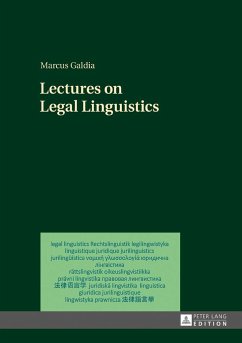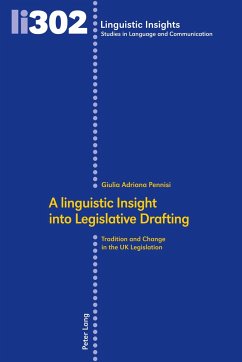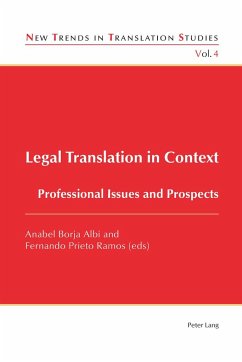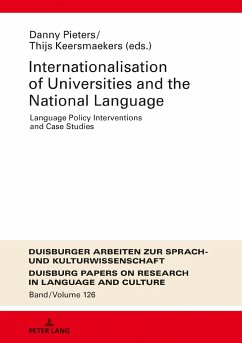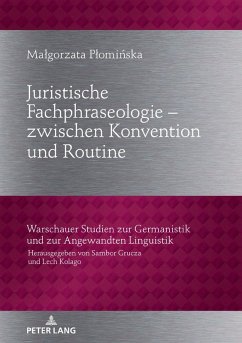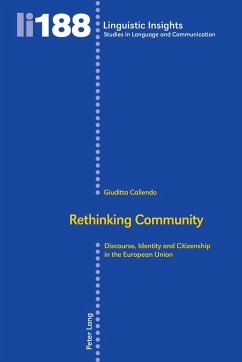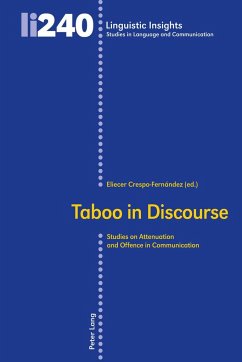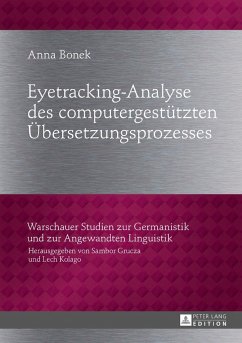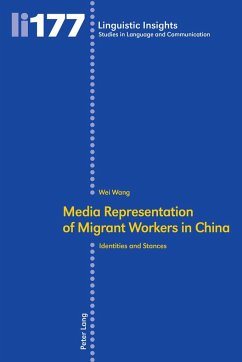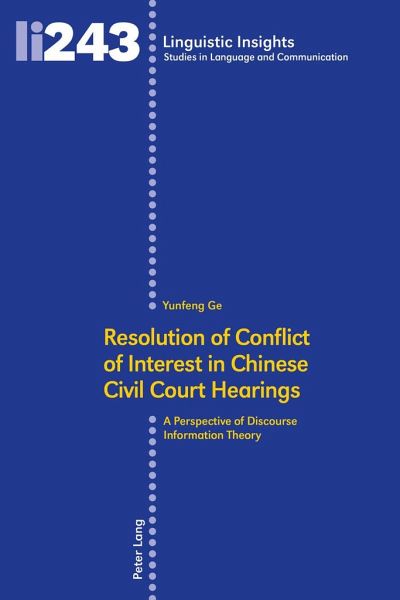
Resolution of Conflict of Interest in Chinese Civil Court Hearings
A Perspective of Discourse Information Theory
Versandkostenfrei!
Versandfertig in 6-10 Tagen
104,65 €
inkl. MwSt.

PAYBACK Punkte
0 °P sammeln!
The rapid development of China's economy has resulted in various kinds of conflict of interest (COI). This study focuses on how COI is resolved in Chinese civil court hearings via discourse information processing. Based on Discourse Information Theory, and the notions of Context Model Schema and Discourse Space, an analytical framework is constructed for the description, analysis and interpretation of the language used in Chinese court hearings.Data analysis has revealed the following major findings: a) litigants in Chinese civil court hearings mainly resort to three information categories whe...
The rapid development of China's economy has resulted in various kinds of conflict of interest (COI). This study focuses on how COI is resolved in Chinese civil court hearings via discourse information processing. Based on Discourse Information Theory, and the notions of Context Model Schema and Discourse Space, an analytical framework is constructed for the description, analysis and interpretation of the language used in Chinese court hearings.
Data analysis has revealed the following major findings: a) litigants in Chinese civil court hearings mainly resort to three information categories when making interest appeals: subjective, objective and explanatory information; b) the process of interest negotiation in court hearings is greatly influenced by such sociological, psychological and discursive factors as identities, intentions, information sharing status, discourse expectations, etc.; and c) different discourse management strategies are adopted to promote conciliation between litigants, among which information management, cognitive management and linguistic management are the most frequently used.
Data analysis has revealed the following major findings: a) litigants in Chinese civil court hearings mainly resort to three information categories when making interest appeals: subjective, objective and explanatory information; b) the process of interest negotiation in court hearings is greatly influenced by such sociological, psychological and discursive factors as identities, intentions, information sharing status, discourse expectations, etc.; and c) different discourse management strategies are adopted to promote conciliation between litigants, among which information management, cognitive management and linguistic management are the most frequently used.





